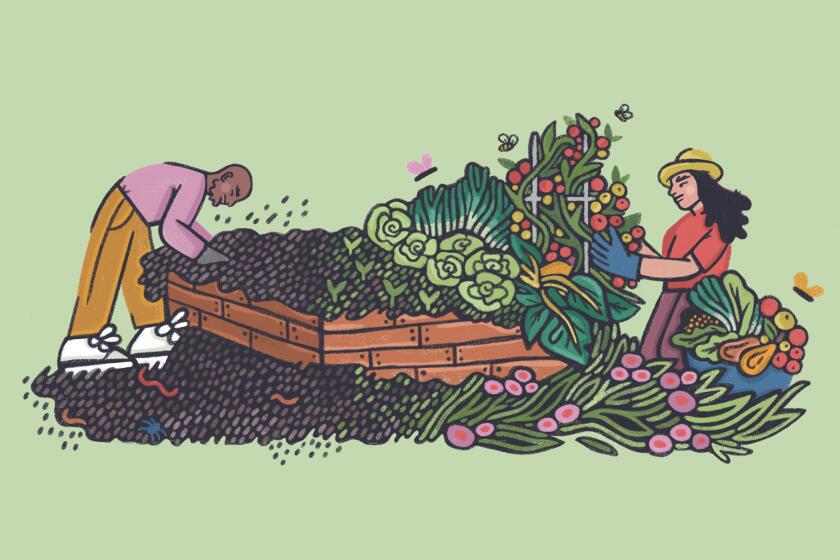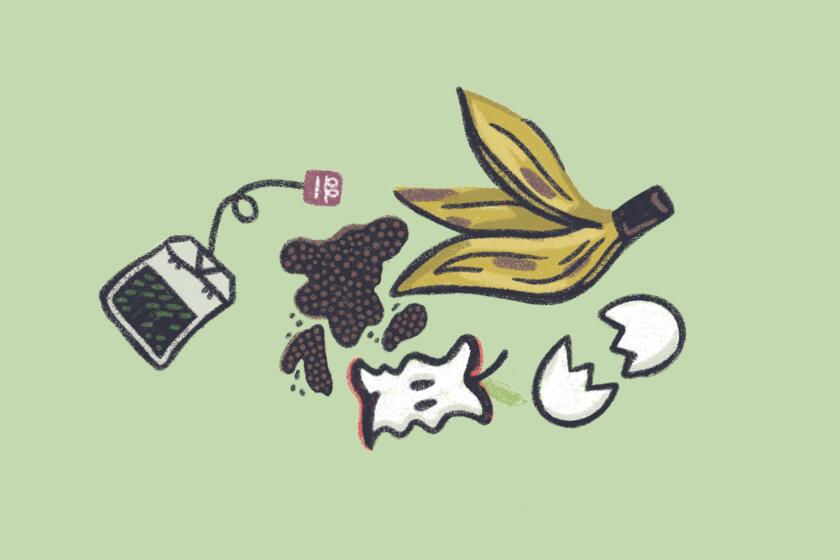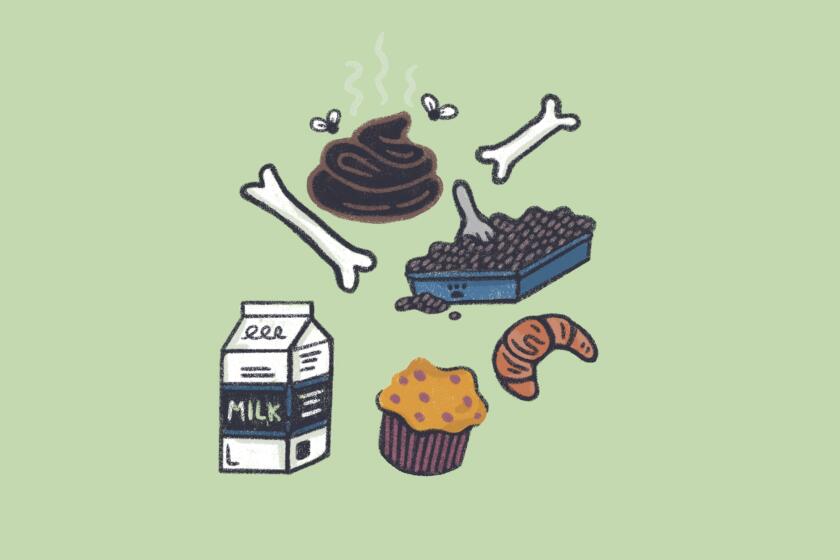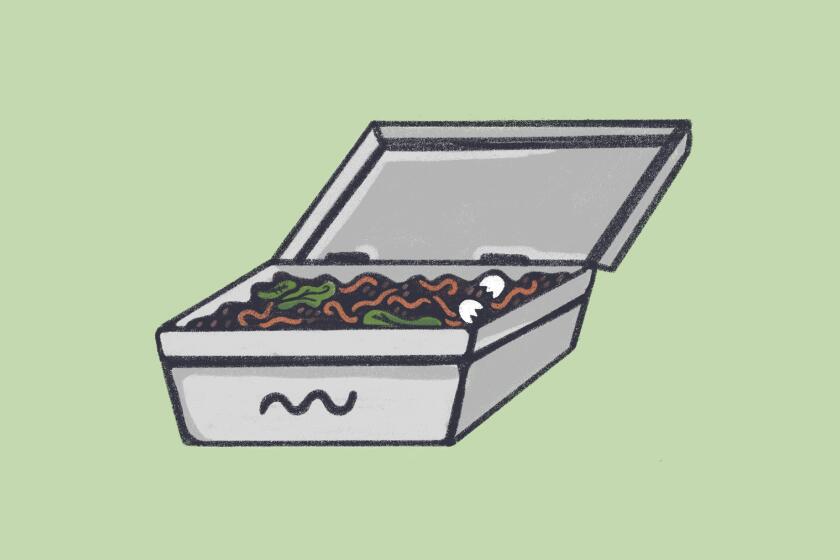Composting 101: How to figure out what’s happening in your community
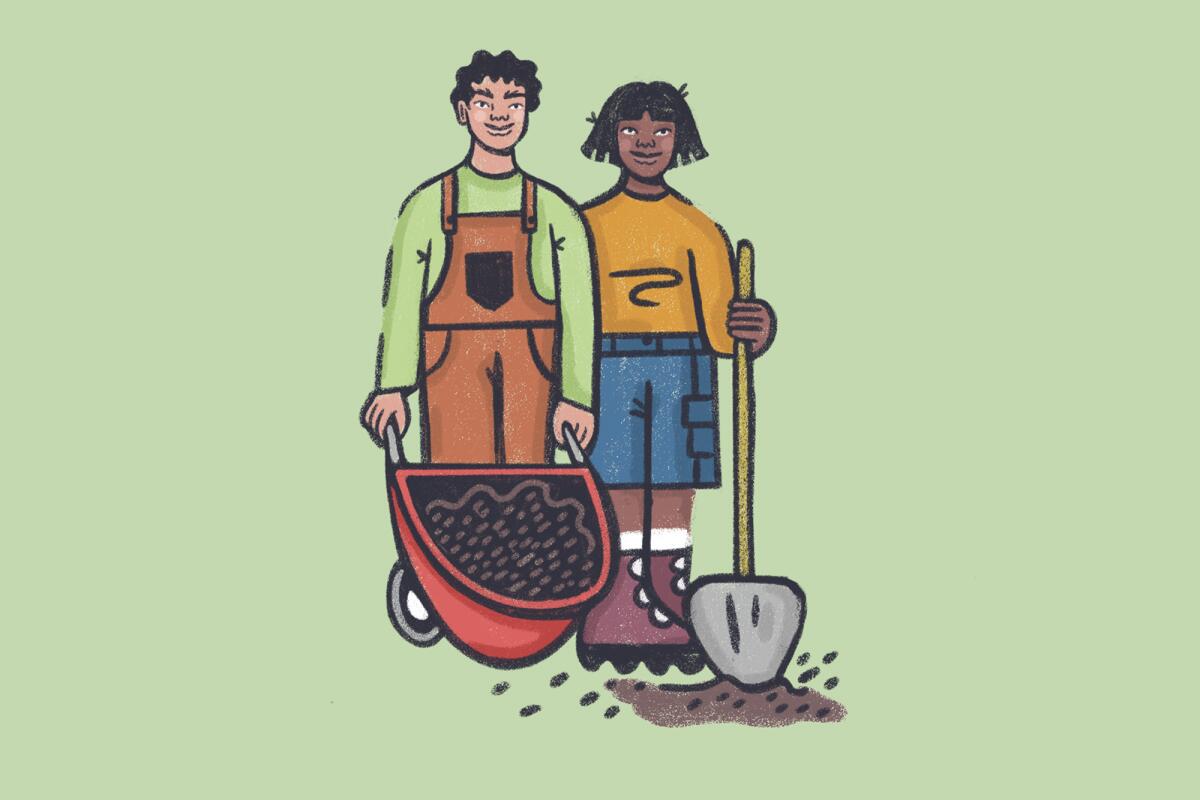
- Share via
Confused about California’s new food waste rules that went into effect Jan. 1? Join the crowd.
Senate Bill 1383’s rules to keep food waste out of our landfills is a win-win-win if you think about the benefits: reducing methane emissions, creating soil-enriching compost and producing fuel. But in our homes, the law is creating consternation — to put it mildly. That’s in part because the state left implementation of the rules to California’s 400-plus local governments. Each jurisdiction is coming up with its own rules about how to manage food waste, and some — like the cities of Long Beach and Los Angeles — are still trying to put their programs in place.
So the first rule of figuring out the new food waste rules is to take a breath and realize these programs are a work in progress.
“This is the biggest change to your trash since we started recycling in the late 1980s,” said Maria West, a spokeswoman for CalRecycle, and SB 1383 “gives local jurisdictions flexibility to do this the way that works for them.”
Here are some easy ways to find out what your jurisdiction is doing:
Check online (and sign up for newsletters or email alerts): Every jurisdiction has a website, and most have whole pages devoted to waste management and recycling. Start by visiting your jurisdiction’s website to see what it says about food waste and SB 1383. (This may not be helpful if your city is still working out a plan. For instance, L.A. Sanitation’s proposal for handling food waste won’t be presented to the City Council until Feb. 3, so there’s no information about it online.)
A new law requires Californians to recycle food scraps and leftovers. What is composting? What can you — and can’t you — compost? We’re here to help.
Browse for deals: Many jurisdictions encourage home composting and offer free classes (many are online now due to COVID-19) as well as rebates or discounts on compost bins or worm composting bins. These offers are often found under public works departments in the recycling or sanitation sections. For instance, L.A. Sanitation has suspended its free, in-person composting workshops during the pandemic but offers how-to videos online.
Get composting
Call your elected officials — or attend a council meeting: If your jurisdiction’s website or sanitation department isn’t giving you the answers you need, contact your elected officials, such as the mayor or council member who serves your neighborhood. In the city of L.A. there are 15 council districts, and each councilmember has a web page.
More to Read
Sign up for The Wild
We’ll help you find the best places to hike, bike and run, as well as the perfect silent spots for meditation and yoga.
You may occasionally receive promotional content from the Los Angeles Times.
